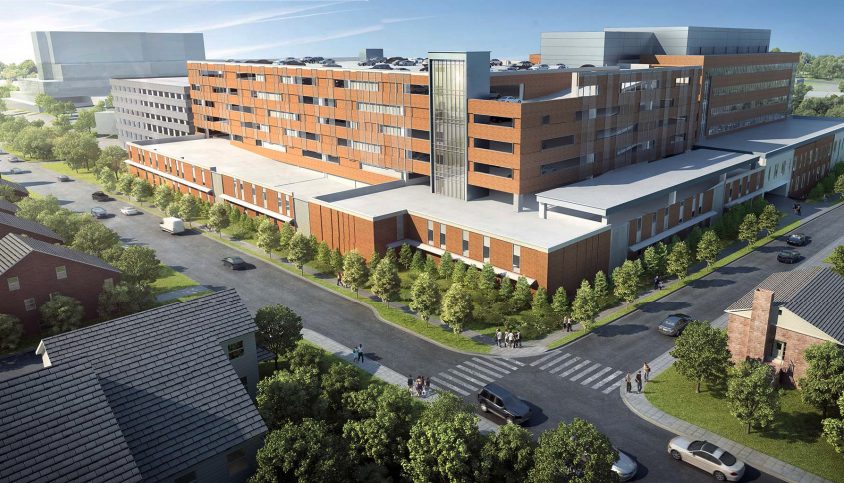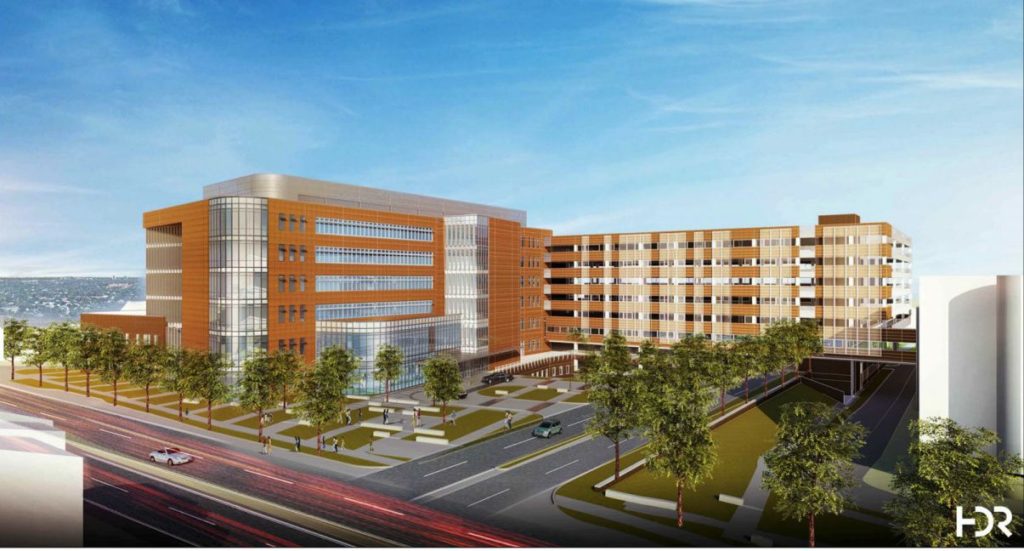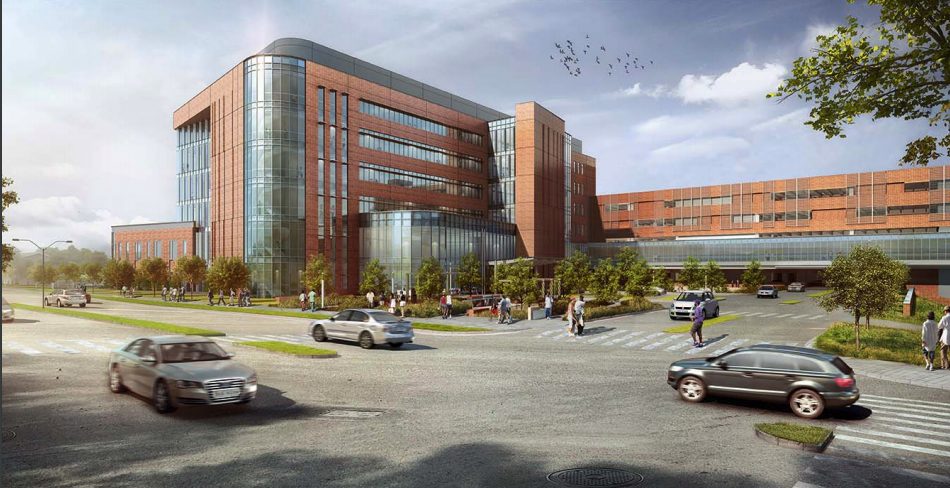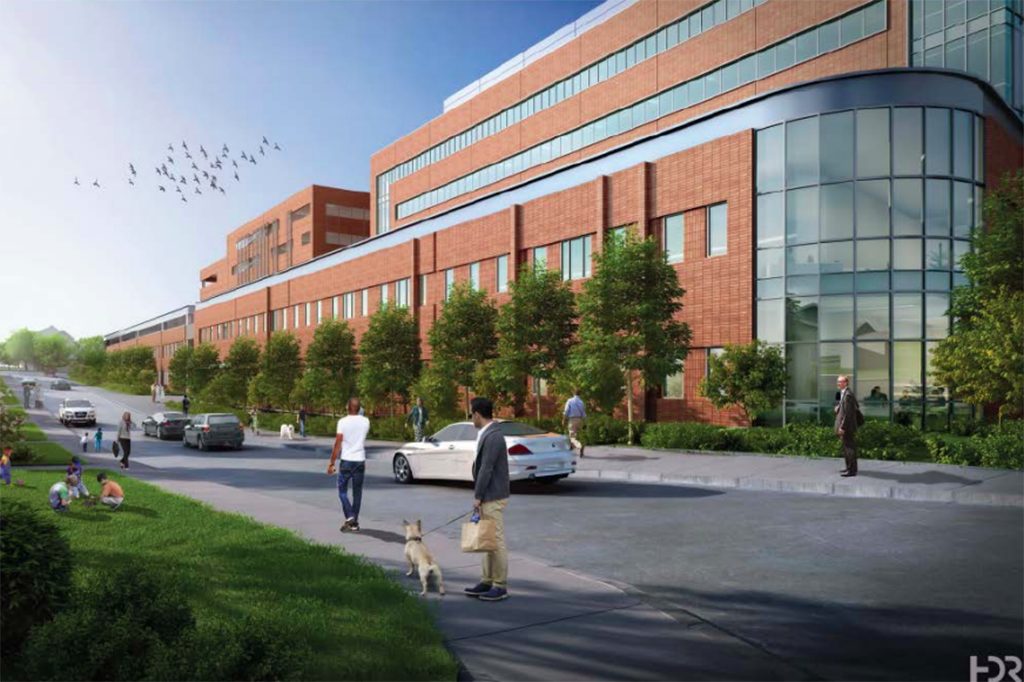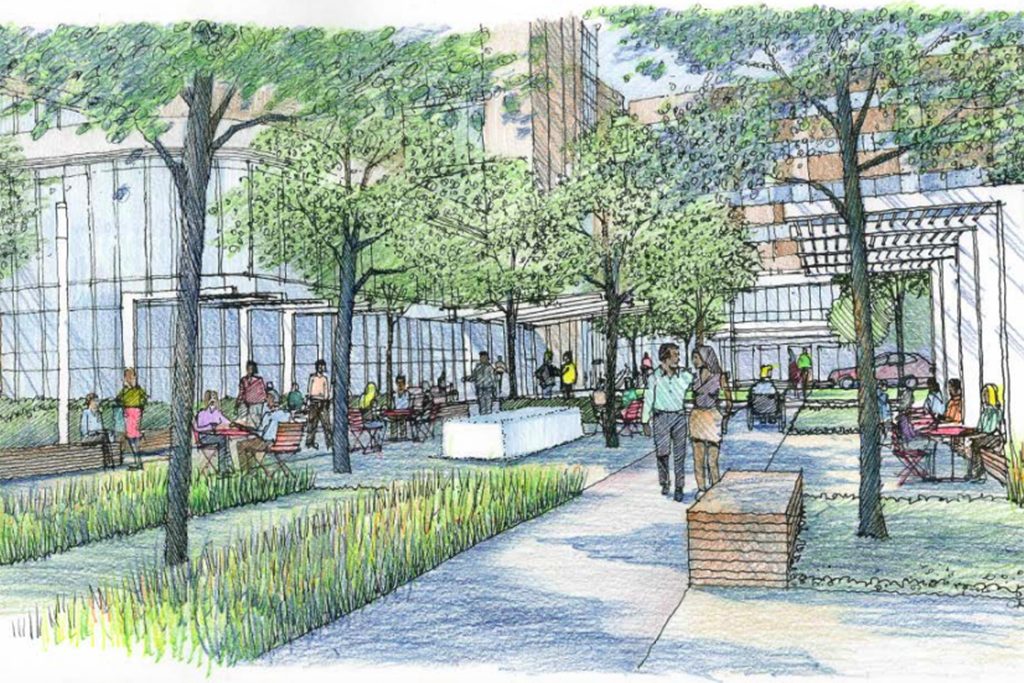Supporters of the Virginia Hospital Center’s expansion plans are ramping up their advocacy efforts, now that the project’s fate looks murky ahead of a key County Board vote.
The hospital itself has begun sending out mailers backing the expansion, according to ARLnow reader Dave Schutz, urging county residents to contact the Board about the $250 million project. Arlington’s lone comprehensive hospital has hoped for roughly a year now to add a seven-story outpatient facility and a 10-story parking garage next to its existing campus (1701 N. George Mason Drive), arguing that it desperately needs more space to keep pace with the county’s burgeoning population.
Meanwhile, the county’s business community is also redoubling its efforts to push the expansion forward. The Chamber of Commerce penned a new letter to the Board today (Tuesday), imploring officials to ignore the recommendation of the county’s Planning Commission and approve the project “without further delay” this weekend.
“Further deferral of this already-delayed project will impose additional financial and time costs that will redirect resources that VHC would otherwise use to provide health care services to the Arlington community,” Chamber President and CEO Kate Bates wrote.
County planners are indeed urging the Board to hold off on giving the project a green light, over concerns about the height and design of the proposed buildings. VHC is looking to build the facilities on a parcel of county-owned land near the intersection of 19th Street N. and N. Edison Street, and the commission argues the large new buildings would look out of place sitting across the street from small single-family homes.
Though commissioners support the project in principle, they voted unanimously last week to recommend that the Board force the hospital to revise its plans to address those concerns. They argue that the county would be better served by requiring the hospital to go through a “Phased Development Site Plan” process, a long-range exercise that would give planners more say over VHC’s intentions to redevelop its existing campus.
The hospital argued that such a process would be prohibitively difficult and expensive, and Bates alleged in her letter that VHC has already been made to wait too long to move ahead with its expansion plans. The hospital originally hoped to earn the Board’s approval this July, but neighbors successfully convinced the county to hold off on until the end of the summer to allow for more community involvement in the process.
“Each additional delay in the approval of the site plan application puts off the day when VHC will be able to care for its patient load in a full and comfortable facility,” Bates wrote. “Absent a timely expansion of VHC to accommodate its patient-centric mission, the community as a whole will bear these costs.”
The Board will have the final say on the matter at its meeting Saturday (Sept. 22), a vote made all the more consequential for the county because Arlington stands to gain an 11.5-acre site on S. Carlin Springs Road as part of a “land swap” with the hospital if the expansion moves forward.
Though Board members have been loath to tip their hands on the vote, they are pledging to thoughtfully consider the concerns of neighbors and planners about the project.
“Public or private institutions and buildings, whether hospitals or schools, office buildings or community centers, must respect our planning documents, the built environment and the residents of surrounding communities,” said Board member John Vihstadt during a Chamber forum last week. “Height, setbacks, connectivity, building orientation, traffic and parking concerns are critical factors in any development proposal, and they’re concerns I take seriously. I’m looking forward to hearing more from the hospital and community in the coming days.”


